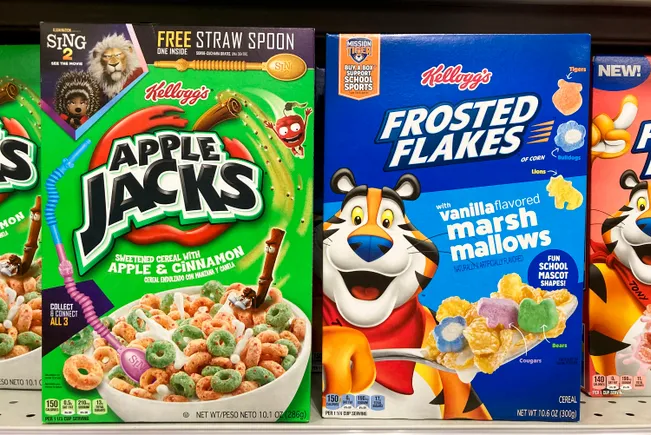Investigation Launched Against WK Kellogg Co by Texas Attorney General Ken Paxton for Alleged Violations of Consumer Protection Laws Related to Cereal Health Claims
Paxton has raised concerns about Kellogg’s cereals being marketed as “healthy” despite the presence of artificial food colorings in blue, red, yellow, green, and orange. These additives are believed to have negative health implications such as obesity, autoimmune diseases, and cancer.
Although Kellogg had promised to remove artificial food dyes from its U.S. products by 2018, Paxton alleges that the company has not followed through, unlike in Canada and Europe where the colorings have been eliminated.
Paxton emphasized the importance of holding companies accountable for deceptive practices that mislead consumers, especially when it comes to the health of food products. He stated, “There will be accountability for any company, including Kellogg’s, that unlawfully misrepresents its food and contributes to a broken health system.”
Kellogg’s spokesperson has not provided a response to the allegations.
Last year, Jason Karp, a shareholder of WK Kellogg and CEO of HumanCo, called on the company to fulfill its commitment to removing food dyes from cereals like Froot Loops and Apple Jacks. His advocacy was part of a larger movement protesting against food dyes in cereals outside Kellogg’s headquarters.
Kellogg’s stated that the majority of its cereal products already do not contain artificial colors, and they are working on introducing new cereals without these additives. The company maintains that all its ingredients comply with relevant laws and regulations.
The investigation led by Texas’ attorney general, known for his alignment with President Donald Trump, coincides with the White House’s push for food and beverage companies to enhance the healthiness of their products under the “Make America Healthy Again” initiative.
The movement to eliminate artificial food colors has gained momentum, particularly with Robert F. Kennedy Jr. heading the U.S. Department of Health and Human Services, bringing renewed focus to this cause.
Last March, West Virginia enacted legislation restricting seven artificial dyes in food products sold within the state. Several other states have also introduced bills targeting food additives, including artificial colors, as reported by the Environmental Working Group.
Last year, the FDA announced the prohibition of Red No. 3, an artificial coloring commonly used in various food products and associated with cancer in rats when consumed in large quantities.
While several food companies have pledged to eliminate artificial ingredients, challenges have arisen in transitioning to natural colors due to differences in performance compared to artificial counterparts. Consumers have also shown reluctance to purchase products with natural colors that may appear less vibrant.

